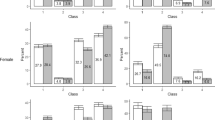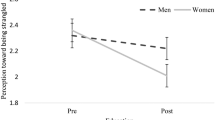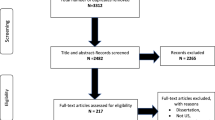Abstract
MSM refugees have to deal with personal challenges and social/structural adversaries based on their refugee status on top of their sexual identity. To better customize interventions beside this population, we explored psycho-social and structural correlates of condom use and HIV testing in Lebanon by surveying and testing 150 participants. 67 % self-identified as gay. 84.6 % reported any unprotected anal intercourse (UAI) with men in the prior 3 months. Those who engaged in UAI, were lest comfortable with a doctor, didn’t know where to get free HIV testing, experienced discrimination based on their refugee status and spent more time with their refugee peers, were less inclined to have seen a doctor in the past 12 month or knew where to get free HIV testing. Ever having been HIV tested was associated with being comfortable with medical doctors, knowing where to get HIV testing and spending time with other peer refugees. HIV prevention and testing promotion efforts targeting MSM refugees need to account for structural barriers, while fighting discrimination is crucial for a healthy sexual identity development.
Similar content being viewed by others
References
UNAIDS, cartographer Global factsheets [MAP]. Geneva: UNAIDS; 2014. http://www.aidsinfo.unaids.org/.
Mumtaz GR, Riedner G, Abu-Raddad LJ. The emerging face of the HIV epidemic in the Middle East and North Africa. Curr Opin HIV AIDS. 2014;9(2):183–91.
Mumtaz G, Hilmi N, McFarland W, Kaplan RL, Akala FA, Semini I, et al. Are HIV epidemics among men who have sex with men emerging in the Middle East and North Africa?: a systematic review and data synthesis. PLoS Med. 2011;8(8):e1000444.
Wagner GJ, Tohme J, Hoover M, Frost S, Ober A, Khouri D, et al. HIV prevalence and demographic determinants of unprotected anal sex and HIV testing among men who have sex with men in Beirut, Lebanon. Arch Sex Behav. 2014;43(4):779–88.
Gökengin D, Doroudi F, Tohme J, Collins B, Madani N. HIV/AIDS: trends in the Middle East and North Africa region. Int J Infect Dis. 2016;44:66–73.
UNAIDS. Country progress report, Lebanon. http://www.unaids.org2015.
Bernstein KT, Liu K-L, Begier EM, Koblin B, Karpati A, Murrill C. Same-sex attraction disclosure to health care providers among New York City men who have sex with men: implications for HIV testing approaches. Arch Intern Med. 2008;168(13):1458–64.
Mimiaga MJ, Goldhammer H, Belanoff C, Tetu AM, Mayer KH. Men who have sex with men: perceptions about sexual risk, HIV and sexually transmitted disease testing, and provider communication. Sex Transm Dis. 2007;34(2):113–9.
Heckathorn DD. Respondent-driven sampling II: deriving valid population estimates from chain-referral samples of hidden populations. Soc Probl. 2002;49(1):11–34.
Stewart AL, Nápoles-Springer AM, Gregorich SE, Santoyo-Olsson J. Interpersonal processes of care survey: patient-reported measures for diverse groups. Health Serv Res. 2007;42(3p1):1235–56.
Williams KA, Chapman MV. Comparing health and mental health needs, service use, and barriers to services among sexual minority youths and their peers. Health Soc Work. 2011;36(3):197–206.
Ross MW, Rosser B. Measurement and correlates of internalized homophobia: a factor analytic study. J Clin Psychol. 1996;52(1):15–21.
Bogart LM, Wagner GJ, Galvan FH, Klein DJ. Longitudinal relationships between antiretroviral treatment adherence and discrimination due to HIV-serostatus, race, and sexual orientation among African-American men with HIV. Ann Behav Med. 2010;40(2):184–90.
Norbeck JS, Lindsey AM, Carrieri VL. Further development of the Norbeck social support questionnaire: normative data and validity testing. Nurs Res. 1983;32(1):4–9.
Carlos J-A, Bingham TA, Stueve A, Lauby J, Ayala G, Millett GA, et al. The role of peer support on condom use among Black and Latino MSM in three urban areas. AIDS Educ Prev. 2010;22(5):430.
Afifi R, Dejong J, El-Barbir F, El-Khoury D, Ghanem M, Kassak K, et al. Mishwar: an integrated bio-behavioral surveillance study among most at risk populations in Lebanon: female sex workers, injections drug users, men who have sex with men, and prisoners. Beirut: Final Report Ministry of Public Health; 2008.
Setayesh HA, Roudi-Fahimi FA, El Feki SH, Ashford LS. HIV and AIDS in the Middle East and North Africa. Washington, DC: Population Reference Bureau; 2014.
Habib RR, editor. Syrian labor in Lebanon: refugees and workers. In: 143rd APHA annual meeting and exposition (October 31–November 4, 2015). Washington: APHA; 2015.
Kabbash I. Risk behaviours for HIV/AIDS infection among men who have sex with men in Cairo, Egypt. East Mediterr Health J. 2008;14(4):905–15.
Wilson PA, Yoshikawa H. Improving access to health care among African-American, Asian and Pacific Islander, and Latino lesbian, gay, and bisexual populations. Berlin: Springer; 2007.
Peterson JL, Bakeman R. Impact of beliefs about HIV treatment and peer condom norms on risky sexual behavior among gay and bisexual men. J Commun Psychol. 2006;34(1):37–46.
Peterson J, Rothenberg R, Kraft J, Beeker C, Trotter R. Perceived condom norms and HIV risks among social and sexual networks of young African American men who have sex with men. Health Educ Res. 2009;24(1):119–27.
Crepaz N, Marks G. Towards an understanding of sexual risk behavior in people living with HIV: a review of social, psychological, and medical findings. Aids. 2002;16(2):135–49.
Meyer IH. Minority stress and mental health in gay men. J Health Soc Behav. 1995;36:38–56.
Sullivan PS, Hamouda O, Delpech V, Geduld JE, Prejean J, Semaille C, et al. Reemergence of the HIV epidemic among men who have sex with men in North America, Western Europe, and Australia, 1996–2005. Ann Epidemiol. 2009;19(6):423–31.
Stall R, Duran L, Wisniewski SR, Friedman MS, Marshal MP, McFarland W, et al. Running in place: implications of HIV incidence estimates among urban men who have sex with men in the United States and other industrialized countries. AIDS Behav. 2009;13(4):615–29.
Cremin I, Morales F, Jewell BL, O’Reilly K, Hallett TB. Seasonal PrEP for partners of migrant miners in southern Mozambique: a highly focused PrEP intervention. J Int AIDS Soc. 2015;18:19946.
Haberer JE, Bangsberg DR, Baeten JM, Curran K, Koechlin F, Amico KR, et al. Defining success with HIV pre-exposure prophylaxis: a prevention-effective adherence paradigm. AIDS. 2015;29(11):1277–85.
Acknowledgments
This paper could not have been written without the continuous support of all the LGBT research team at the University of Pittsburgh, and the other colleagues within the amfAR scholars program. Support from the University of Pittsburgh IRB and the Lebanese American University IRB in reviewing the protocols also deserve recognition, and financial support from the Foundation for AIDS research, amfAR. Acknowledgment and grateful recognition also is due to Marsa—sexual health center in Beirut, Lebanon for generously offering its premises as the site of data collection. I would like to finally acknowledge the support of the MSM refugee community in Beirut, especially the group of men who participated in the study, all of my colleagues and my personal research mentor, Dr. Glenn Wagner.
Funding
This paper was supported by two awards from amfAR—The Foundation for AIDS Research: 108471 “A training program for research among MSM in developing world settings” (Pittsburgh) and 108801 “HIV Research among MSM in Developing World Settings” (Lebanon).
Author information
Authors and Affiliations
Corresponding author
Ethics declarations
Conflict of Interest
Author Johnny Tohme declares that he has no conflict of interest. Co-authors James E Egan, Ronald Stall, and M. Reuel Friedman declare that they had no conflict of interest.
Ethical Approval
All procedures performed in studies involving human participants were in accordance with the ethical standards of the institutional and/or national research committee and with the 1964 Helsinki declaration and its later amendments or comparable ethical standards. Informed consent:
Informed Consent
Informed consent was obtained from all individual participants included in the study. IRB approval for the study protocol was obtained from both the University of Pittsburgh, PA, USA and the Lebanese American University, Beirut, Lebanon.
Rights and permissions
About this article
Cite this article
Tohme, J., Egan, J.E., Friedman, M.R. et al. Psycho-social Correlates of Condom Use and HIV Testing among MSM Refugees in Beirut, Lebanon. AIDS Behav 20 (Suppl 3), 417–425 (2016). https://doi.org/10.1007/s10461-016-1498-3
Published:
Issue Date:
DOI: https://doi.org/10.1007/s10461-016-1498-3




